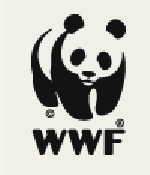Major Responsibilities:
The Climate and Energy Officer will be responsible for providing technical inputs and support the Climate and Energy team for the implementation of programs related to climate change adaptation and renewable energy, transport, climate finance and other innovative programs that contribute to the Climate and Energy goal of WWF Nepal. S/he will be directly involved in implementing, reporting and documenting lessons on WWF’s climate change and energy projects and programs in the field on a quarterly, semi-annual and annual basis. S/he should be well-versed on issues related to climate change negotiations, adaptation, renewable energy mix and low carbon development in the context of Nepal. S/he must be willing to work and travel extensively in remote areas both in the Terai and mountains.
Qualifications:
A Master’s degree in environmental engineering/environment science, natural resource management or a relevant discipline with at least three years of relevant work experience is required. Candidates who have demonstrated experience in managing landscape level programs, staff and budgets with sound experience in climate change adaptation, renewable energy and low carbon development are highly encouraged to apply. Good communication skills including written and spoken English is essential.
**Apply before: 17:00 hours on 1 March, 2016.
Interested applicants are requested to download the application form and send the same with an application letter to the email address hr@wwfnepal.org.
Please mention the position you are applying for as the subject. Emails without an application letter and completed application form will not be entertained. Only shortlisted candidates will be informed. Detailed TOR for the mentioned position can be downloaded.
This Job is expired. The Company is no longer accepting applications for this position.
WWF is the world’s leading independent conservation organization originated from Switzerland in 1961 and currently running in more than 100 countries across 6 continents. The program started from conservation of wildlife to broader concept of building future where humans can live in harmony with nature. WWF has created 1,480 ecoregions that categorize the world into its natural ecosystems. Nepal with Bhutan, northeast India, southeast Tibet and northern Myanmar, falls under the Eastern Himalaya region housing the threatened species Snow Leopards, Bengal Tigers and One-horned Rhinos.
It was in 1967, WWF initiated WWF Nepal with a rhino conservation program in Chitwan. To keep up with the evolving face of conservation and environmental movement, WWF Nepal’s focus progressed from its localized efforts in conservation of single species in 1960s, integrated conservation and development approach in 1990s, to a new horizon of landscape level conservation encompassing national, regional and global scales of complexity in early 2000s.
